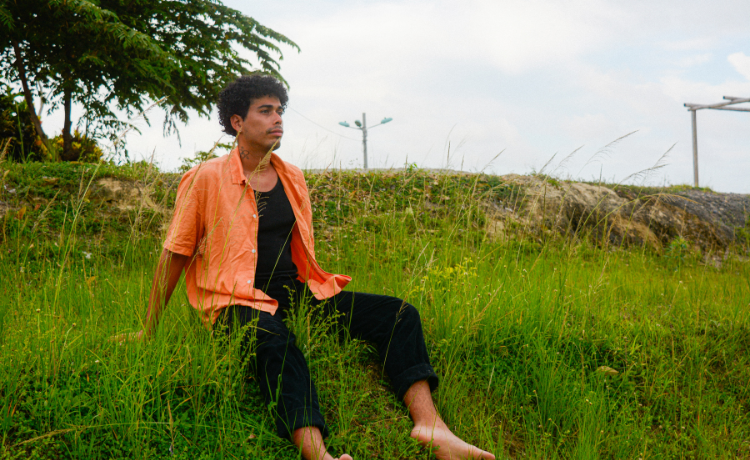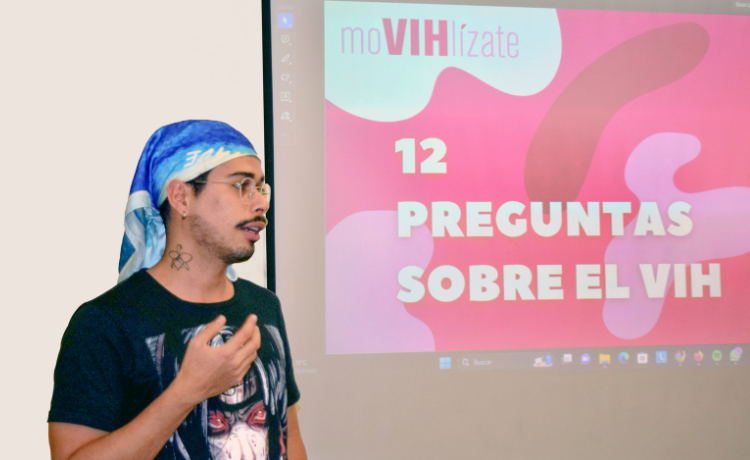QUITO, Ecuador – “The reality of Esmeraldas is complex, but this community strength, this identity that constantly dignifies itself in search of joy, makes it a beautiful place.”
Twenty-seven-year-old Anthony Guerrero takes pride in where he comes from. Esmeraldas, a coastal province at the northwestern border between Ecuador and Colombia, is known for its scenic beaches and warm climate, attracting visitors from across the country. But the region also has its challenges: With one of the highest poverty rates in the country, many residents face social insecurity and barriers to basic rights such as health care, education and clean water.
Mr Guerrero is Afrodescendent, like 45 per cent of the population of Esmeraldas – the highest proportion in Ecuador. Although his parents married young and separated shortly after his birth, he spent his childhood surrounded by the love of the women in his life – his mother, his grandmother and his aunts.
When he was 13 years old, Mr Guerrero began to identify as gender fluid. This new aspect of his identity came as a surprise, leading him to seek out spaces where he could learn about himself and his sexuality in a safe and creative way. By participating in cultural activities, he learned to express himself through literature, art, music, poetry and theatre – pursuits that would become even more essential to his well-being as he entered a difficult time in his life.
A diagnosis that marked a new chapter

While in his first year of university in Guayaquil city, at the age of 19, Mr Guerrero was diagnosed as HIV positive. With little knowledge about the condition or what it meant for his health, he believed his life was in danger. Although he immediately sought professional advice, his first encounter with a health-care provider was a negative one: The doctor perpetuated discriminatory ideas about HIV, which Mr Guerrero found intimidating. But he refused to be deterred, and travelled to Quito, Ecuador’s capital, to find access to quality information and care.
Globally, almost one in four people living with HIV have experienced stigma and discrimination from their community, with LGBTQIA+ communities and gender-diverse individuals especially prone to such treatment. Internalized stigma – which occurs when a person begins to believe negative stereotypes about themselves – is especially common among young people living with HIV.
Connecting with others in the community and accessing accurate information is key to tackling taboos. When he arrived in Quito, Mr Guerrero met a young man who invited him to join a meeting of the Ecuadorian Network of Positive Youth and Adolescents, a safe space for young people living with HIV to share their experiences. With the support of his peers and the assistance of UNFPA, the United Nations sexual and reproductive health agency, and UNAIDS, Mr Guerrero took his first steps into the world of activism.
“This meeting represented the beginning of my healing process, not only physically, but also emotionally,” shared Mr Guerrero. “ It made me understand that HIV was not synonymous with death.”
His involvement in this collective, peer-to-peer space encouraged Mr Guerrero to continue his studies in literature at the University of the Arts in Guayaquil, and soon after led him to a diploma in HIV and collective health at the Latin American Council for Social Sciences (Consejo Latinoamericano de Ciencias Sociales).
Activism through art

Mr Guerrero has continued to be a vocal advocate for young people living with HIV in Ecuador. In 2019, he became the leader of MoVIHlízate, a platform which brings together young people who live or coexist with HIV. Created with the support of UNFPA in 2018, the space aims to tackle paternalistic and stigmatizing attitudes surrounding sexuality and HIV through a gender-diverse and culturally sensitive rights-based approach.
For Mr Guerrero, MoVIHlízate is “not only a space for work, but also for friendship and support.” Under his leadership, young people from across Ecuador have participated in counselling and training in comprehensive sexuality education and initiated campaigns to tackle issues of discrimination and stigma. The group also offers to accompany others living with HIV when they access health and protection services.
His long-standing passion for the arts has also given Mr Guerrero another vehicle for his activism: In 2023, he published ‘In the beginning was the fever’, a book of poems exploring his experience as a young man living with HIV. This year he curated the exhibition ‘POSITIVA: Latin American HIV Culture Artistic Residency’, an event that brought together nine Latin American artists living with HIV to address stigma and discrimination.
Although the number of AIDS-related deaths in Latin America has decreased by 28 per cent since 2010, the number of new HIV infections increased by 9 per cent in the same period. HIV disproportionately affects young men who have sex with other men, transgender women and female sex workers, with these three key populations accounting for more than half of new infections.
UNFPA is committed to investing in long-term solutions to support the sexual and reproductive health and rights of those living with HIV. Quality health care and comprehensive sexuality education are crucial to building the protective environments needed to prevent HIV and other sexually transmitted infections in adolescents and other populations in vulnerable conditions.

